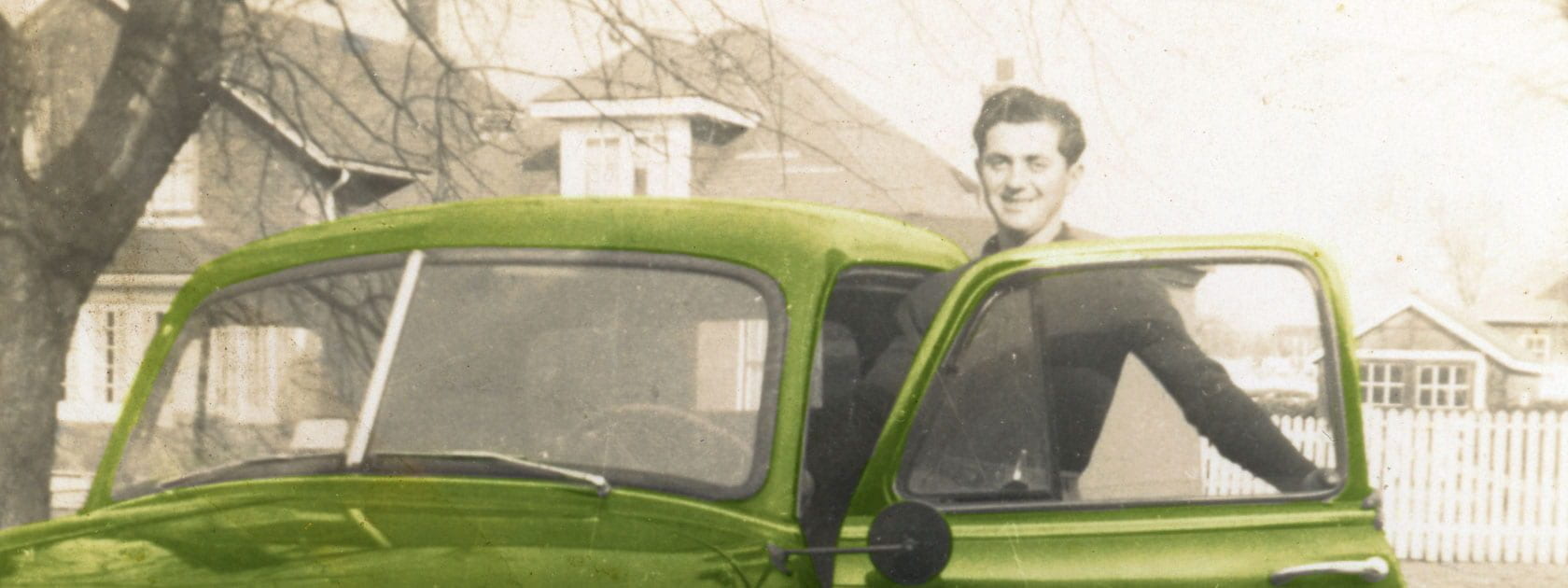Date
July 19, 2011
Maker
Columbus Centre
Accession#
ICEA2011.0056.0001
Interview With James McCreath
James McCreath was born in Toronto on June 8, 1948 to Myrtle Franceschini and Ralph McCreath. Myrtle’s father was Vincenzo (James) Franceschini, an Italian immigrant who came to Canada from Abbruzi, Italy (via Ellis Island) in 1905. James started Dufferin Construction, a successful construction company which started as a house building company but flourished by getting into road building. Leonardo Franceschini joined his brother in Canada in 1923 and helped start the family business (Dufferin Construction was officially registered as a business in 1926). James was a great lover of horses and an excellent business man. He made many powerful friends and connections and made and lost several fortunes throughout his life. In 1939 he began making minesweepers for the Canadian government for the war effort from his plant on Fleet Street. In 1940 he was interned at Camp Petawawa. McCreath states that there was no evidence that his grandfather had done anything wrong and that he was detained because certain people held personal grudges against him. Leonardo, as well as the family lawyer, worked hard to get James out of the camp. There were even discussions about his situation in the Globe and Mail and in Canadian Parliament. During his internment, James developed cancer. With the prompting of the camp doctor, as well as Member of Parliament, John Diefenbaker, and Premier of Ontario, Mitchell Hepburn, James was eventually released in 1941. James moved to Mont Tremblant where he continued to run parts of the business but tried to stay out of the spotlight. He died in 1960.
In this opening clip James McCreath introduces himself and talks about his parents and grandparents.
James McCreath speaks about his grandfather James Franceschini, sharing the story of his immigration to Canada and the start Dufferin Construction.
In this clip James McCreath talks about how his grandfather came to be known as James, his first job in construction and Leonard Franceschini’s migration to Canada. He also provides some insight into his grandfather’s character.
James McCreath talks about how his grandfather’s business prospered during the Depression right up until the war years.
In this clip James McCreath talks about his grandfather’s involvement in the Italian Canadian community in Toronto.
James McCreath describes Myrtle Villa, his grandfather’s home in Toronto (formerly Mimico).
In this clip James McCreath speaks about the events leading up to World War I and his grandfather’s eventual arrest and internment in Petawawa.
James McCreath mentions that his grandfather never spoke about his internment experience after his release from the camp.
James McCreath discusses how his grandmother and mother fared while his grandfather was interned.
James McCreath describes how the Canadian government oversaw his grandfather’s businesses while he was interned, using his businesses to advance the war effort. He also briefly talks about his great-uncle Leonard’s internment and life in the camp for the two men.
In this clip James McCreath recounts the story of his grandfather sending a horse to Mussolini, which was used to prove his grandfather was a fascist.
In this clip James McCreath talks about his grandfather’s relationship to Camillien Houde, the mayor of Montreal who was also interned during World War II.
James McCreath talks about his grandfather and great-uncle’s lawyer and his efforts to get both men released from Petawawa.
James McCreath describes life in camp for his grandfather.
James McCreath discusses his grandfather being released from camp on compassionate grounds.
James McCreath speaks about his grandfather’s involvement with Italian social groups and his direct contact with Italy ultimately being the reason for his internment.
James McCreath speaks about his grandfather’s life after his release from the internment camp.
In this clip James McCreath discusses how his grandfather’s business thrived after his release due to contracts he acquired with the US government.
James McCreath talks about how his grandfather never blamed the Canadian government for their actions during World War II.
In this clip James McCreath talks about how his mother suffered during her father’s internment.
James McCreath talks about the post-war years.
In this final clip James McCreath talks about his grandfather’s final years and his own parents.



